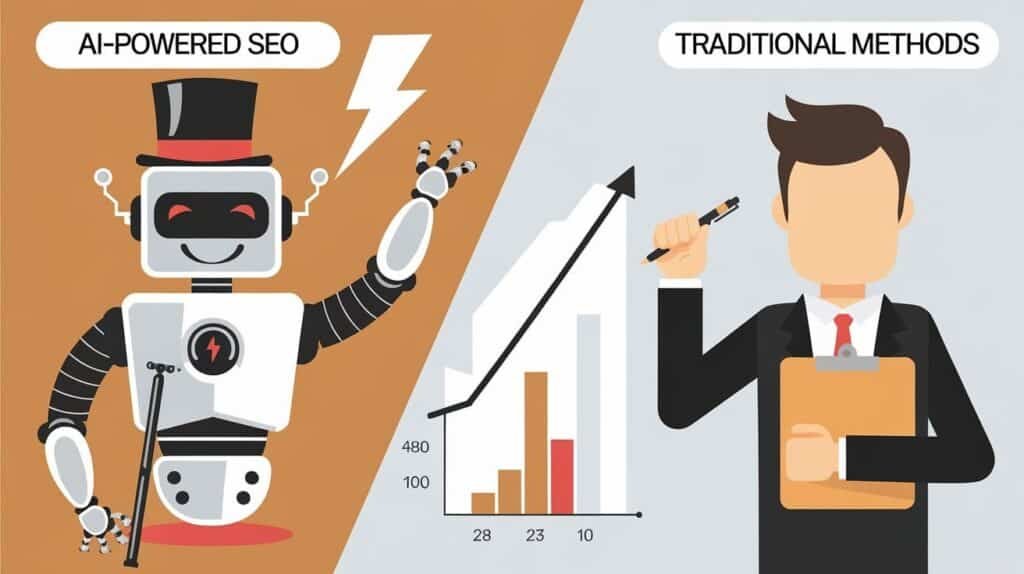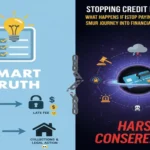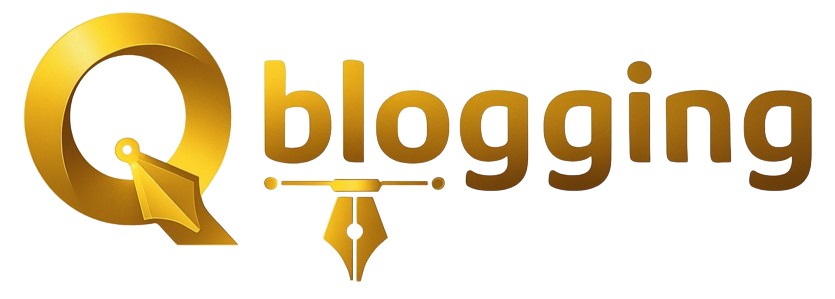Why AI Powered SEO vs Traditional SEO Matters
AI Powered SEO vs Traditional SEO 2025 is redefining how businesses and bloggers optimize for search. With AI-powered engines like Google SGE, ChatGPT, and Bing Chat changing the rules, traditional SEO is facing its biggest shift ever. Understanding the key differences in AI vs Traditional SEO is crucial for staying ahead in the digital landscape.
In this blog, we will explore:
✔ The rise of AI-driven search engines
✔ AI SEO vs Traditional SEO differences
✔ The impact on businesses, bloggers, and digital marketers
✔ Practical strategies to win in 2025
What Are AI-Powered Search Engines?
AI-powered search engines use natural language processing (NLP) and machine learning to provide smarter, context-aware, and conversational answers, rather than just showing a simple list of links. This major shift highlights the growing debate of AI SEO vs Traditional SEO, as businesses adapt their strategies to match how users now search for information.
Examples in 2025:
- Google SGE (Search Generative Experience)
- ChatGPT with Web Access
- Perplexity AI
- Microsoft Bing Chat
AI Powered SEO vs Traditional SEO 2025
AI Powered SEO vs Traditional SEO: Key Differences in 2025
| Aspect | Traditional SEO | AI SEO |
|---|---|---|
| Focus | Keywords & backlinks | Context & intent |
| Results Format | List of links | Direct AI answer |
| Ranking Factor | Domain authority | Relevance & accuracy |

Why AI is Transforming SEO Strategies
AI Powered SEO vs Traditional SEO 2025 – AI search engines prioritize context, expertise, and trust signals over keyword density. Meta tags and keyword stuffing are becoming obsolete.
Top 3 AI Impacts on SEO in 2025
- Featured Snippets Decline – AI answers reduce CTR on featured snippets.
- Voice Search Optimization – More queries via AI assistants like Siri 2.0.
- Content Quality > Quantity – Authority and unique insights matter most.
- What Happens If You Stop Paying Your Credit Card? Smart Truth, Harsh Consequences

- Inside the Epstein Files: A Clear Breakdown for First-Time Readers

How to Optimize for AI-Powered Search Engines
1. Write Conversational, Contextual Content
Answer questions naturally. Use FAQ-style content.
2. Build Authoritative Content Hubs
Create pillar pages and interlink relevant blogs for topical authority.
3. Implement Structured Data & Schema Markup
Use FAQ schema and HowTo schema for Rank Math SEO.
4. Optimize for Multi-Modal Search
AI supports text, voice, and images. Use alt text, transcripts, and video descriptions.
5. Leverage AI SEO Tools
Use Rank Math AI, Surfer SEO, Jasper for content optimization.
Impact on Bloggers, Businesses, and Marketers
For bloggers and brands, the challenge is visibility in AI-generated answers, not just SERPs.
AI Powered SEO vs Traditional SEO 2025
Pro Tip: Add personal insights, case studies, and original data. AI favors unique perspectives.
Are Backlinks Still Relevant in AI SEO?
Yes, but their role is changing. AI uses backlinks as a trust signal, not a primary ranking factor. Authority matters more than quantity.
AI SEO vs Traditional SEO for E-Commerce
AI will influence shopping behavior by offering:
- Personalized product suggestions
- AI-driven voice shopping
- Intelligent chatbots for instant purchase
Challenges Ahead for SEO Professionals
- Traffic Decline: AI reduces clicks to websites.
- Monetization Issues: Harder to track AI-driven traffic.
- Ad Revenue Drop: Paid ads may lose visibility as AI takes over results.
What You Must Do in 2025
- Build Brand Authority: Use PR, social proof, and reviews.
- Create AI-Optimized FAQs: Direct answers in structured formats.
- Adopt a Hybrid Strategy: Combine traditional SEO + AI-focused optimization.
Final Verdict: Is Traditional SEO Dead in 2025?
No, but it’s evolving. AI-powered search engines will dominate, and SEO must adapt to prioritize user intent, authority, and contextual relevance.
✅ FAQs (AI SEO vs Traditional SEO)
Q1: What is AI SEO and how is it different from traditional SEO?
AI SEO uses machine learning and NLP to optimize for context and intent, while traditional SEO focuses on keywords and backlinks.
Q2: Will traditional SEO die in 2025?
No, but it will evolve. AI SEO will dominate, requiring new strategies.
Q3: How do I optimize for AI-powered search engines?
Use conversational content, structured data, and topical authority.
Q4: Is link building still important in AI SEO?
Yes, but quality and trust signals matter more than volume.
Q5: Which is better: AI vs Traditional SEO?
AI SEO is the future, but a hybrid strategy works best.
